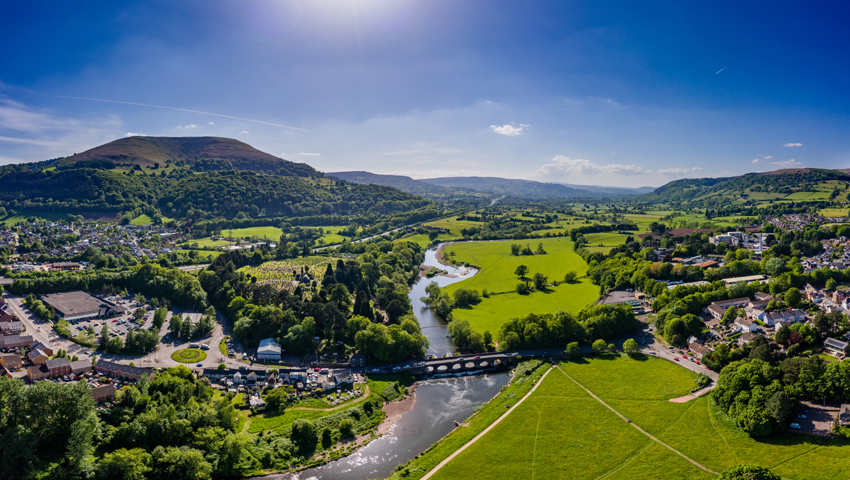The Usk Catchment Partnership is a nutrient management board working to deliver changes that improve the health of the River Usk. As part of its innovative approach, the Partnership has announced the appointment of We are Nature Based CIC to act as nature guardian to the core group.
8.9 TV News spoke to Tom Johnstone, the Director of We are Nature Based, to find out more.
Johnstone said, “This is an incredibly exciting moment. This is the first time that any organisation of this type – any non-corporate organisation – has decided to put the rights of nature so central to its structure.
“We’ve done it through the nature guardianship model and it gives us a real opportunity to have conversations with farmers, policymakers and land owners from that deep ecology and nature perspective, and to find nature-positive solutions to the nutrients issues and to slowing the flow of water; flooding and drought issues, and the broad suite of challenges that river catchments within the UK face.”
We are Nature Based is a Community Interest Company (CIC) consultancy that supports the uptake of Nature Based Solutions. Johnstone explained that a lot of their work would be around natural flood management, offering support, advice, guidance and practical installation around a suite of solutions. But the company is also keen to help further the discussion around the rights of nature.
Future generations
The objectives of We are Nature Based are also supported in Wales by the Welsh Government’s ground-breaking Wellbeing of Future Generations Act.
Johnstone said, “There is an empty seat at the table in the Senedd to really give people that physical reminder that the decisions that we’re making go far beyond either a 5-year Senedd term or a single year, or 5 or 10 year investment cycle. The decisions we’re taking will affect our grandchildren.”
Nature’s voice
The River Usk is the longest protected river system in Wales, it is designated both as a Site of Special Scientific Interest and as a Special Area for Conservation, and the Catchment Partnership is co-ordinated by the Bannau Brycheiniog National Park. Nature’s voice will now be part of planning and policy conversations about the future of the Usk Catchment.
Johnstone said, “When the Usk Catchment Partnership comes together there are a number of voices in the room – representatives from farming community, the water companies, Natural Resources Wales and the local authority – but everyone who comes into that core group has multiple hats that they have to wear. The one voice that isn’t directly and independently in that room and in that discussion is nature’s voice. This is an opportunity for there to be one or two individuals whose sole focus is the voice of nature and the rights of nature.
“The idea is following a very similar model to how children are represented by a guardian, by an adult, if they have to give evidence in court – we will have an individual who will speak for the voice of nature.”
Financial value
In addition to the intrinsic value of nature, there is also a financial value. Johnstone said, “There is a huge scope for economic valuation of aspects of nature – clean water is valuable to us, wildfire prevention is valuable to us, shade and shelter has a financial value to farmers – and if we’re able to tap into some of those economic models and markets then we’re able to direct money back into nature restoration.”
Addressing the practical difference that this innovation might have on policymaking, Johnstone said, “This is a 24-month nature guardian role that we’ve been recruited in to help the Usk Catchment Partnership with. There are more questions than answers at the moment. This is really about developing the lived experience. There are a number of organisations globally that have put nature on the board in a corporate setting, but what we’re doing in the Usk Catchment Partnership has never been done in the UK before. We’re in a different governance structure, and conceptually in a very different position, and also the people sitting on that board aren’t profit-focussed. It’s a collection of people who have come together specifically to try and improve the health of the river.
Farming
Johnstone concluded, “The early indication is that this will allow conversations to happen that might not otherwise have happened – and the really interesting thing to me is that the people who have shown the greatest eagerness to just get on with this are the farming community.
“It was the farmers in the room who said, ‘Look, let’s just do it, let’s get on with it, let’s live with it and then we can reflect back in a year’s time and say: these are the differences it made, these are the things that would have happened anyway, these are the areas where it caused some difficult conversations or challenges, and these are the values.'”
Watch our interview with Tom Johnstone
